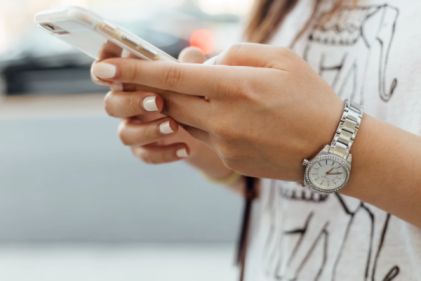Thousands of parents around the world have opened up about their concerns over their children’s smartphone usage and the effect it has on their mental wellbeing. Since smartphones have taken over the lives of many young people, parents across the globe are set to face a Smartphone Summer with their children and have revealed how they think this will impact their family’s dynamic.
In new research, commissioned exclusively by HMD (Human Mobile Devices), it has been discovered that the average age when a parent allows their child to have a smartphone for the first time is 11, but many have now admitted that they wish they waited for their little one to be older.
The worldwide study saw 10,000 parents in the UK, US, India, Germany and Australia surveyed and found that over half regret exposing their child to a smartphone at such a young age. A third of parents who took part in the survey explained that the negative effects of the device and changes in personality are the main reasons they wish they waited longer.
Now that the summer's here and children are away from the classroom, parents have expressed their worries about the amount of time their children will be spending on their smartphones.
70% of parents confessed that when they were younger, they engaged more with their family because of their smartphone-free childhood. However, it is quality time their children don’t experience now because 55% say their child’s phone use is a source of big arguments and a third have cried over their child’s phone obsession.
According to the survey results, three-quarters (73%) of parents think their children will see their phones more during the summer break from school, with 64% saying it will negatively impact their sleep. 61% also think it will reduce the amount of physical activity they get over the summer months, and more than half (54%) worry that it will reduce the amount of time they spend socialising with friends.
With more than half of parents agreeing smartphones can have a positive impact on their children and benefit them educationally during the summer break, including allowing them to keep in touch with friends, parents clearly face a dilemma.
Tech innovator HMD is now working to understand these challenges and provide a range of fresh, innovative solutions that could benefit parents, their children, and anyone seeking reliable alternatives to smartphones.
HMD is well-acquainted with the digital detox space, having led the dumbphone trend by reinventing classic feature phones for modern consumers looking to reduce screen time and limit social media use.
The phone manufacturer is now looking to collaborate with parents to co-create a phone and other innovative solutions that can serve as credible smartphone alternatives, giving parents control over their children's screen time and social media use.
HMD is also eager to work with anyone interested in this topic and who wants to be part of the journey to create change and develop new solutions. This includes Generation Z, influencers, policymakers, campaigners and support groups. They can sign-up to be involved at https://www.hmd.com/en_int/better-phone-project
Lars Silberbauer, CMO of HMD, revealed, “The Better Phone Project is a journey to discovering a variety of solutions that tackle digital overload, providing choice and balance. Our goal is to collaborate with parents and experts to develop solutions that truly meet people's needs, driving innovation in this space.”
Other key points to emerge from the global survey include almost 75% of parents fearing smartphones expose their children to dangers on the internet, with more than 50% revealing they don’t actually know what their children get up to when using their phones.
Commenting on The Better Phone Project, UK expert Dr Becky Foljambe, Founder of Health Professionals for Safer Screens, stated, “Exploring the depth and breadth of emotion alongside the need for solutions (when 38% parents are feeling there are ‘no solutions’ according to the research results), makes this a very meaningful and impactful initiative by HMD."
"My feelings reading this research is that it goes some way to de-stigmatising parents, and releasing the ill placed blame that seems to be being piled on parents to police and supervise these devices at home and be across all technological advances to protect children, when the reality is the technology to protect these children could be improved. Solutions are urgently needed and we commend HMD for exploring these in a pragmatic and honest way.”
Joe Ryrie Co-founder of Smartphone Free Childhood commented, “We’re delighted that HMD is committed to addressing the glaring gap in the market for child-friendly phones through this project. Their research into children and smartphones is yet more evidence of the impossible position that parents find themselves in today; We either give our children access to a device they might not be ready for, or choose not to and risk alienating them from their peers.”
“It’s an issue that the 100,000+ parents who’ve joined our community since February are battling with on a daily basis, and we know that solving it requires a collaborative effort between parents, children, government and tech companies.”
“Parents in our community are crying out for a phone which is desirable to children but isn’t designed to steal their attention. So we’re very excited about collaborating with HMD to help define what a modern child-friendly phone should be.”








